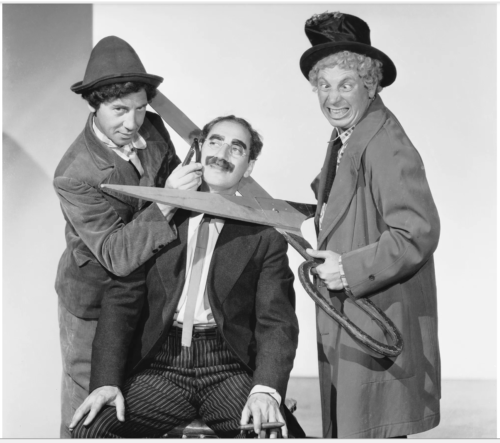The cartoonist, Lynda Barry, contends that most adults suffer from “play amnesia.”

Lynda Barry learning from kids at play
Living in these dark times, many overlook play as a valuable resource to diffuse stress and lighten one’s mood.
For example, when your news feed becomes too much to take in, take a break, and turn to humorous writing, like Dorothy Parker or The New Yorker Anthology of Humor.
To conquer your play amnesia, reach back in your memory to recall childhood incidents of play. In my family my father loved a good practical joke, consistently retrieving his box of rubber chocolates for unsuspecting guests. My brothers and I never tired of startling stuffy relatives with a whoopie cushion under their dining room seat. And who said whoopie cushions were only for kids? Grandchildren offer a perfect excuse for silly play, helping one recover from play amnesia.
Grandchildren offer a perfect excuse for silly play, helping one recover from play amnesia.
One Thanksgiving when my young grands were visiting, I was tired and crabby from my exhaustive preparations. I spontaneously retrieved three sets of lit headgear, handed both Jane and Max one, put on one myself, and led the way. We raced out the door, yelping for joy, as we ran around the block. We laughed and laughed. My stress level plummeted.

Jane and Max and I ready to race out the door in our lit headwear to scare the neighbors!
Grown-up play might include watching madcap movies with friends to induce belly laughs, creating playful exchanges.
In everyday encounters, playful banter and behavior can enhance connections among friends, spreading joy. But sometimes, play is nothing more than wanting to have fun.

Colette, playful at every opportunity, celebrating her 80th birthday party
Reject the notion that play is a waste of time or that you’ll look silly. You probably will look silly; that goes with the territory because play is all about being spontaneous and carefree. I’m reminded of an acquaintance who likes to dress his dog in colorful clothes, often choosing matching colors for himself. When he walks his dog, strangers smile and laugh, making him an ambassador of good will.
My friend’s playful nature echoes the Dalai Lama, who champions “playful humor,” calling himself a “professional laugher.” He once delivered an entire lecture with a tissue on his head to loosen up his audience. His Holiness is fond of saying, “humor softens the heart.”

The Dali Lama in a playful mood, delivering a lecture with a tissue on his head
Cousins was hospitalized and seriously ill, fighting to survive. He persuaded the hospital staff to set up his room with a movie projector so he could watch Marx Brothers movies. It was 1986, long before streaming was invented. Cousins watched the Marx Brothers, laughing up a storm. As his health improved, Cousins concluded, “Laughter is the best medicine.”

A hobby or new interest with a playful quality has been known to conquer depression. Martha Rice wrote a WOW guest blog, describing how learning to play the ukulele was key to overcoming her depressed state.
Laughter Yoga is gaining in popularity for its ability to enhance well-being.

Laughter yoga
It’s based on the premise that one can laugh away stress. Laughter yoga combines laughing exercises with yoga breathing techniques. I followed a 5-minute YouTube video presentation where the instructor, alone in a bare studio, flayed her arms around and laughed like crazy. I tried to laugh with her, but it felt forced. I’m assuming it’s different in a class where everyone around you is laughing.
When I have trouble falling asleep, I often read humor to relax.
A favorite humorist of mine is Miranda July. In her story, “The Swim Team,” Mona, a lonely young woman offers swimming lessons to three elderly neighbors. The lessons take place on Mona’s kitchen floor, where, under her whimsical instructions, three large bowls become a swimming pool. The seniors bond and Mona feels less lonely. The triumph of play!

July’s short story collection that contains “The Swim Team”
To reawaken your play brain, hang with play experts, like your grands, young kids in the neighborhood, or with artist pals. Kids and artists inhabit the world of imagination, where play is central. Follow their lead to abandon your serious state for the magical world of play, where silly smiles and laughs are in abundance.

Agnes Varda, the French director, who epitomized grown-up play
 Grandchildren offer a perfect excuse for silly play, helping one recover from play amnesia.
Grandchildren offer a perfect excuse for silly play, helping one recover from play amnesia.






